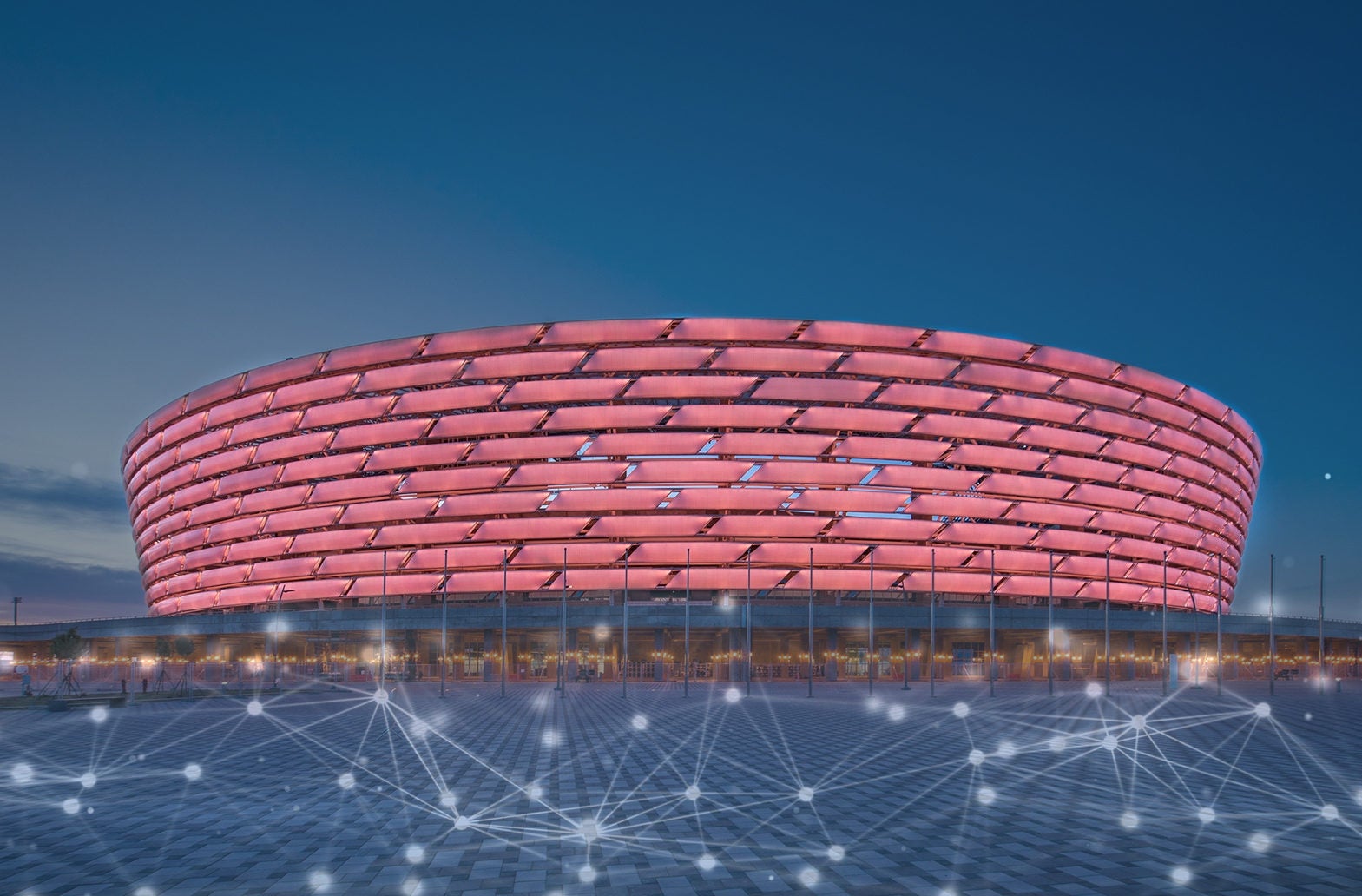
Tonight will see two of Europe’s leading football teams fight for the Europa League trophy, yet all of the talk in the build up to the game has focused on the organiser, UEFA, and the host, Baku.
More than 6,300 of the 12,000 tickets allocated to the two competing teams are expected to be handed back, as fans struggled to find a way to make the 2,500 mile journey to the Azerbaijan capital. With no direct flights from the UK available, fans faced paying out hundreds or thousands of pounds to reach the stadium in the air or close to a week of traveling via bus and rail.
Yet, while UEFA’s decision to stage the final in Baku may raise further questions over the apparent difficulty that football’s governing bodies face when selecting hosts, it also helps to promote the huge potential of virtual reality (VR) in sports.
Putting fans in Baku
“New technologies change the way we experience media, but technology can also make things more accessible,” Fabio Torlini, Managing Director for Europe at hosting company WP Engine, told Verdict.
Fans might have struggled to make it to Baku, but they can still have a front row seat for tonight’s game. As well as its traditional coverage, BT Sport will offer customers the able to watch the Europa League final in virtual reality through the BT Sport App.
This follows the BBC’s decision to broadcast some 2018 World Cup games in VR through its iPlayer app last year.

US Tariffs are shifting - will you react or anticipate?
Don’t let policy changes catch you off guard. Stay proactive with real-time data and expert analysis.
By GlobalDataOf course, VR technology in its present form offers up plenty of criticism. Streaming quality and lag can and do break emersion. Yet, improvement is fast-paced and, as such, viewing through VR is expected to be “the norm” within the next few years.
“This use of VR is likely to become more common place in football generally over the next few years,” Brian Morris, Vice President and General Manager of Global Media & Entertainment Services at telecommunications company Tata Communications, told Verdict. “This is likely to be the norm by Qatar 2022.”
However, rather than replacing the sports viewing experience that fans currently enjoy in-stadium or on the television, VR’s potential lies in how it can “elevate and change the experience”, Torlini believes.
One of the benefits of virtual reality is the ability to shift the camera perspective throughout the game. This, Torlini explains, essentially allows the viewer to “be their own producer”, picking and choosing what they see and how they see it.
Tata Communications successfully trialled this during the F1’s 2017 Singapore Grand Prix, allowing fans to view the experience from on-board Lewis Hamilton’s Mercedes vehicle or fix their focus on the pit lane. The company is now working with the PGA European Tour to give golf fans a similar 360 degree experience in 8K Ultra High Definition quality.
Atmosphere: A potential pitfall?
Replicating the atmosphere at the Baku Olympic Stadium tonight might not be too difficult, given less than 6,000 fans are expected to be in attendance. However, atmosphere does present a challenge for VR to overcome.
Sitting at home in a VR headset would not provide the same experience that the 78,000 that packed into Moscow’s Luzhniki Stadium to see France crowned World Cup champions enjoyed last July, for example.
However, VR spaces like OTHERWORLD and DNA VR, which has sprung up in London in the past few years, are beginning to address this. These venues provide places for groups of friends to come together and experience VR as a social activity.
Many of the games and experiences offered by these arcades allow multiple players to jump into VR together. Players can see, hear and interact with their peers around them. As the technology advances, similar experiences are likely to come to live events, such as future Europa League finals, too.
“When a member of the audience looks left or right, they’ll be able to see a virtual representation of the people sitting either side of them,” Torlini explains. “These won’t just be placeholders, either – each avatar will follow the movements of the person it represents, turning its head in the same direction and ‘looking’ wherever he or she does.”
VR won’t take sports fans out of the stadium
The top six Premier League clubs made an average of $82m each from gate and matchday income throughout the 2017-18. Technology’s potential to offer fans matchday experiences without visiting a stadium will undoubtedly be a concern for football clubs.
However, Morris feels that improving VR could prove to be financially rewarding for clubs.
“The reality is fans today want to engage with their favourite sports in many ways – and this includes the Europa League final,” Morris told Verdict. “Done well, digital technologies like VR can give sports organisations the ability to create more emotional connections with their fans and, as a result, drive new revenue streams.”
By strengthening the connection between fan and club, fans are more likely to purchase subscriptions, buy merchandise and shell out on increasingly costly matchday tickets — so long as the journey there isn’t too treacherous.
Read more: Operators turn to live sports in search for 5G use cases







